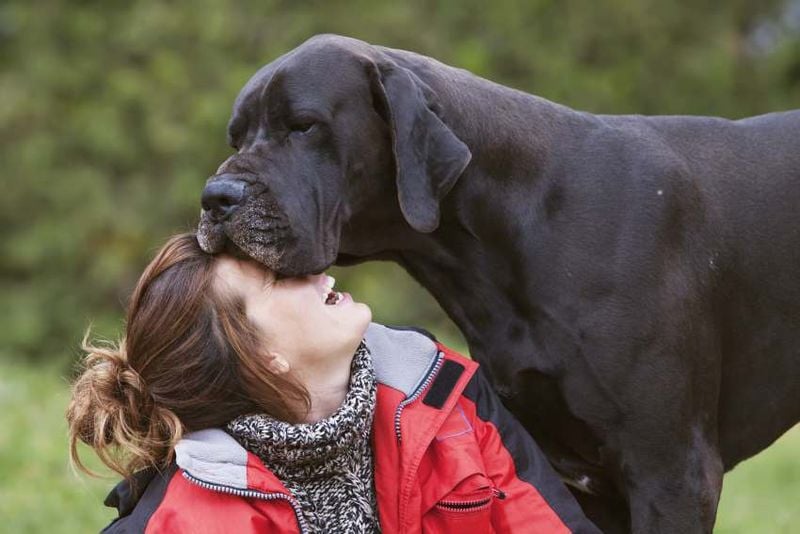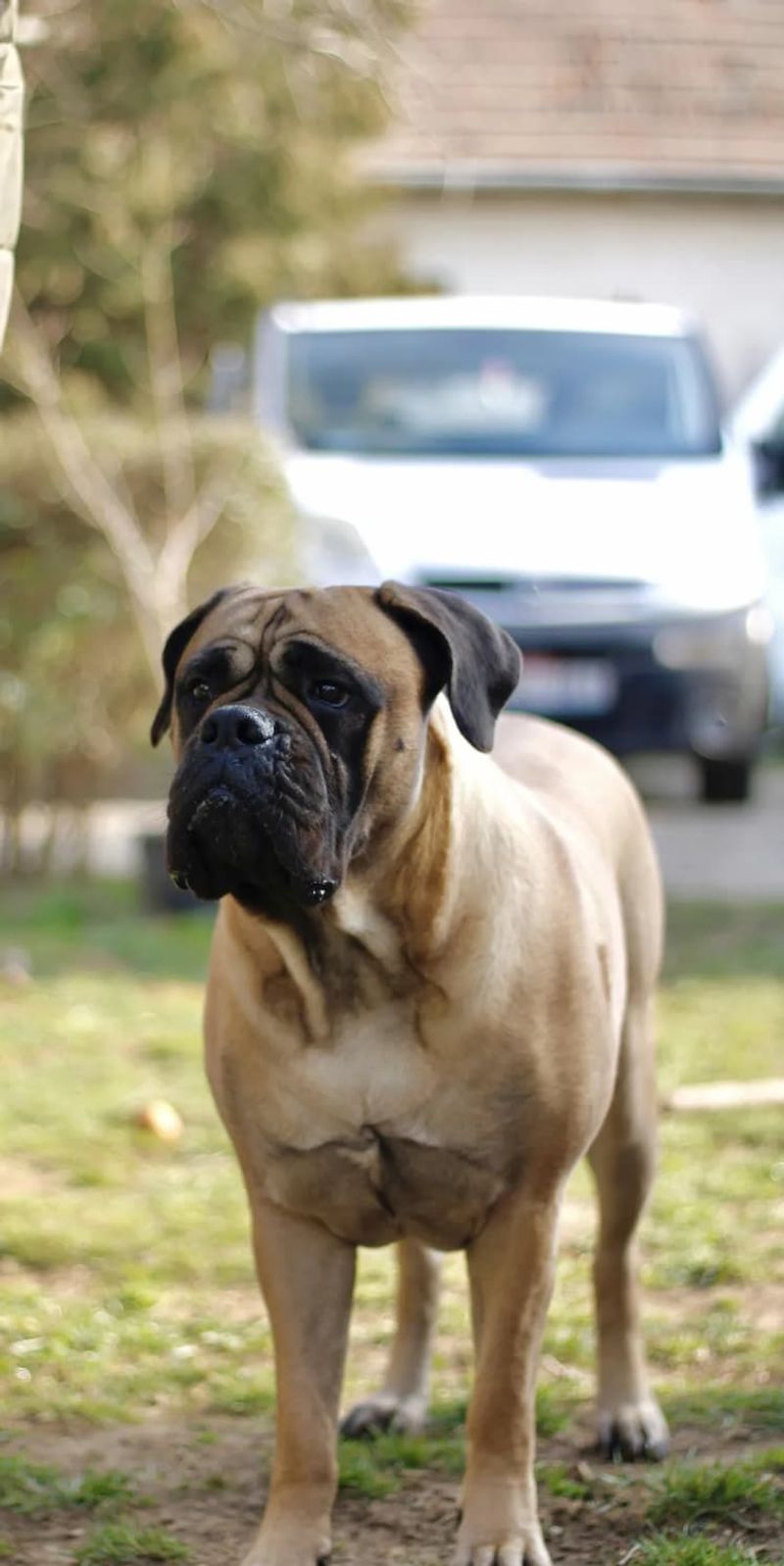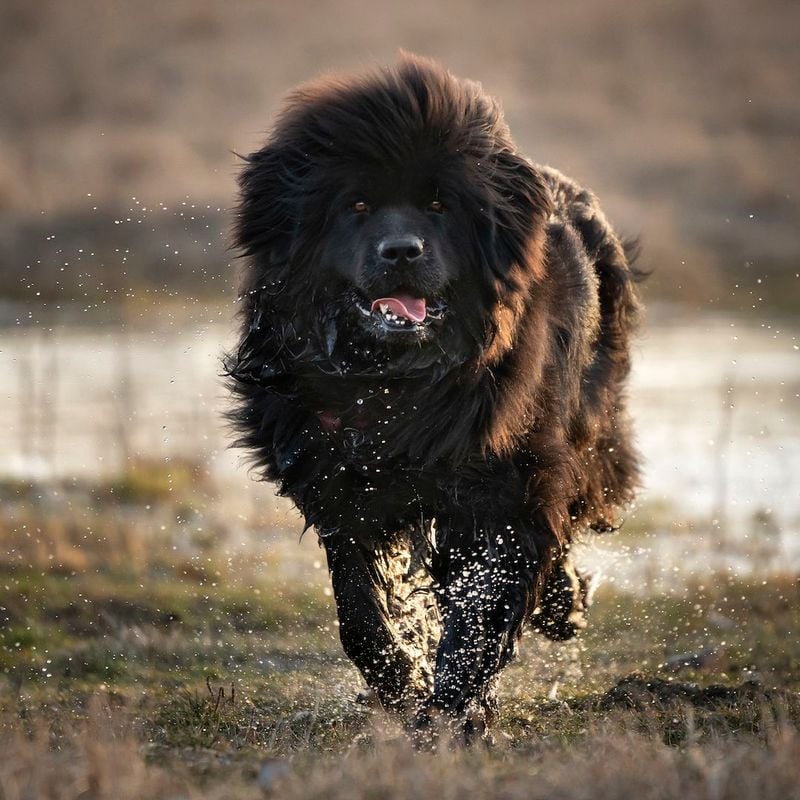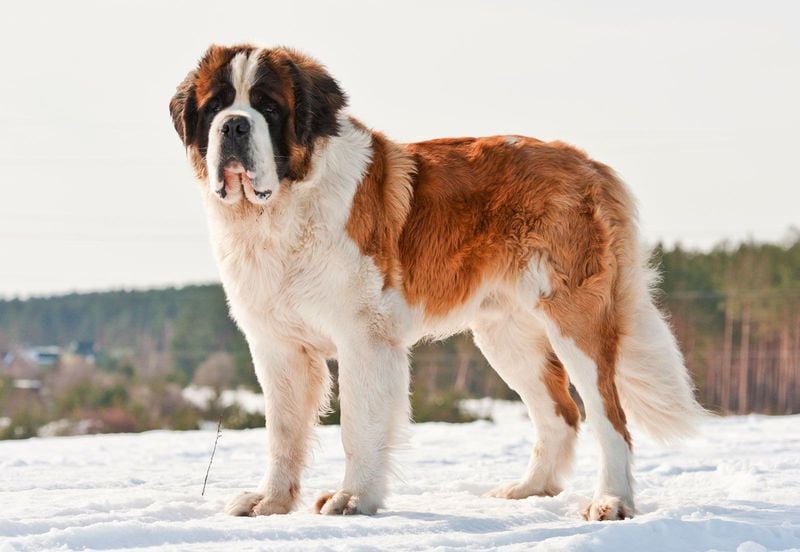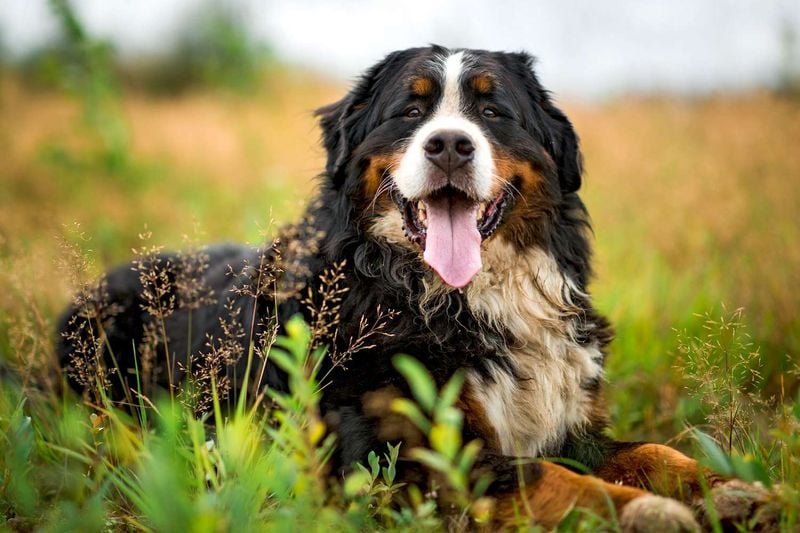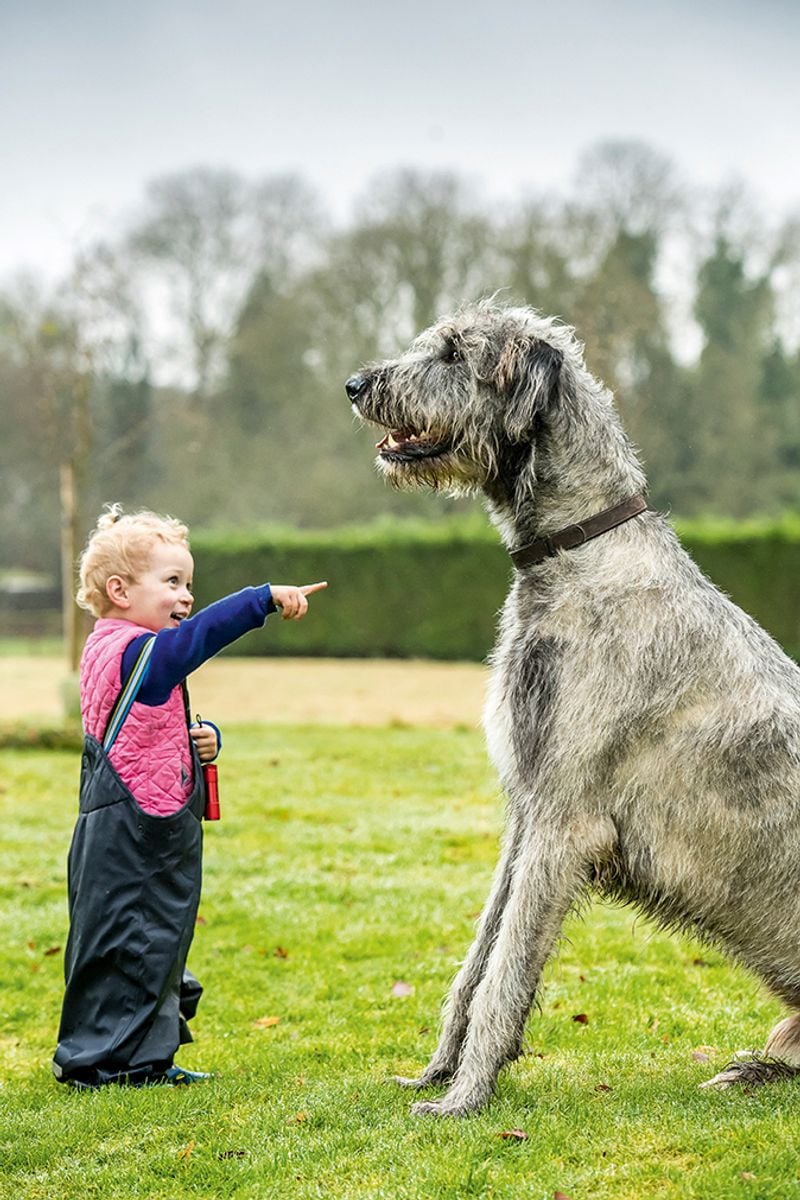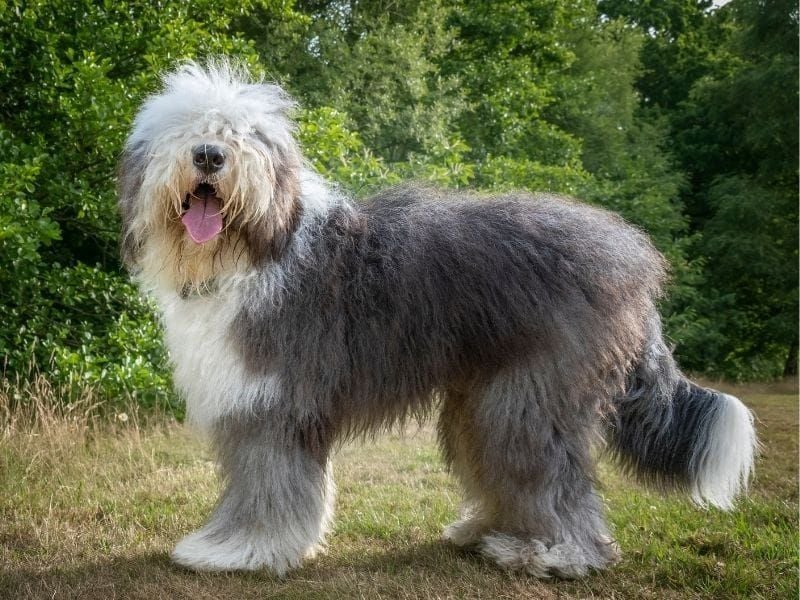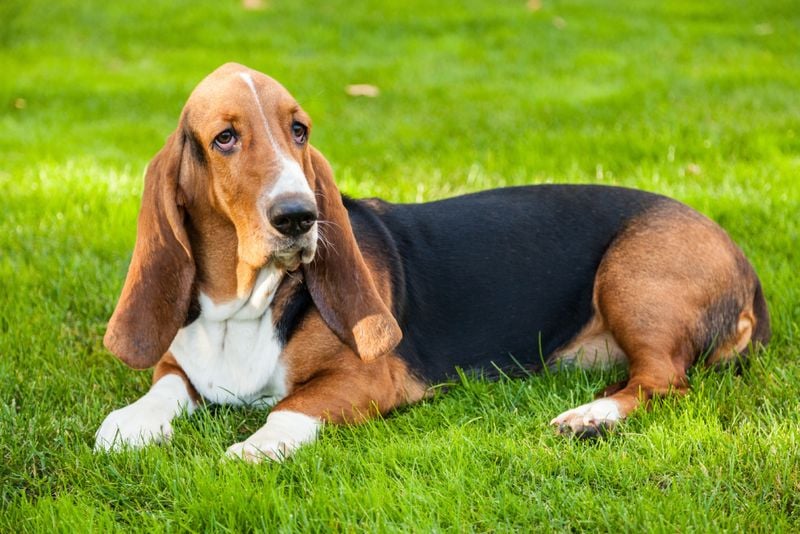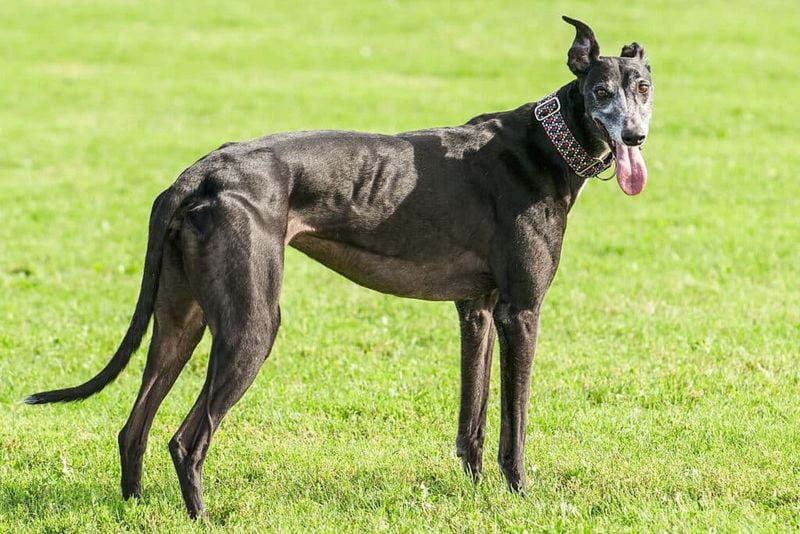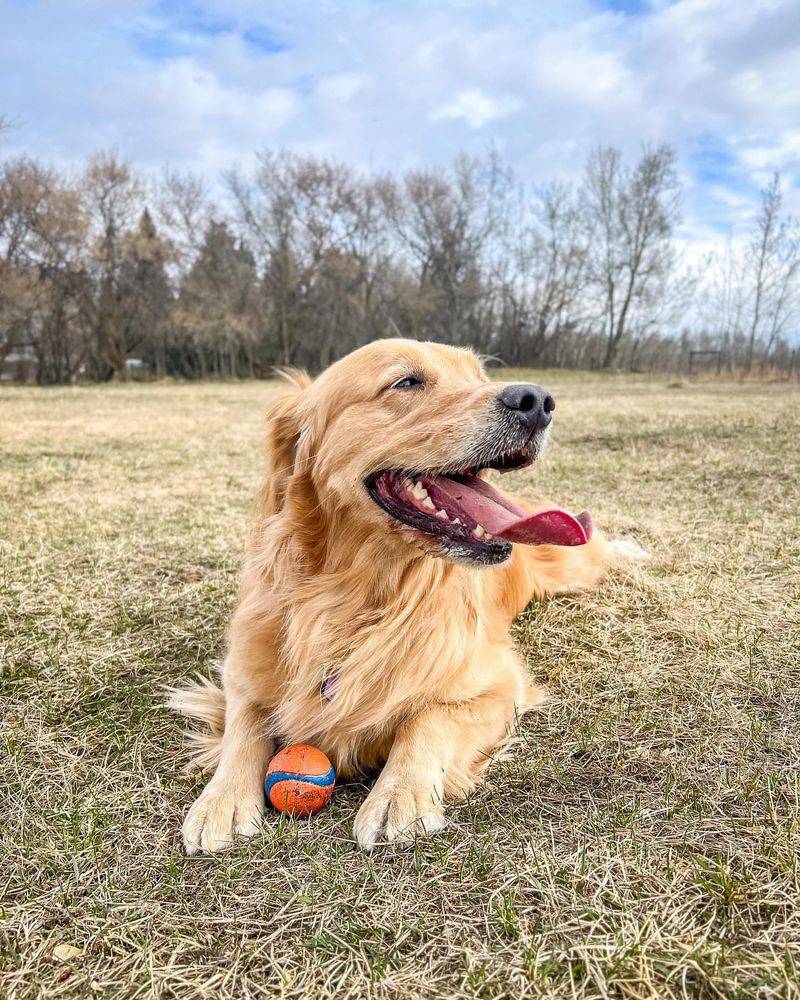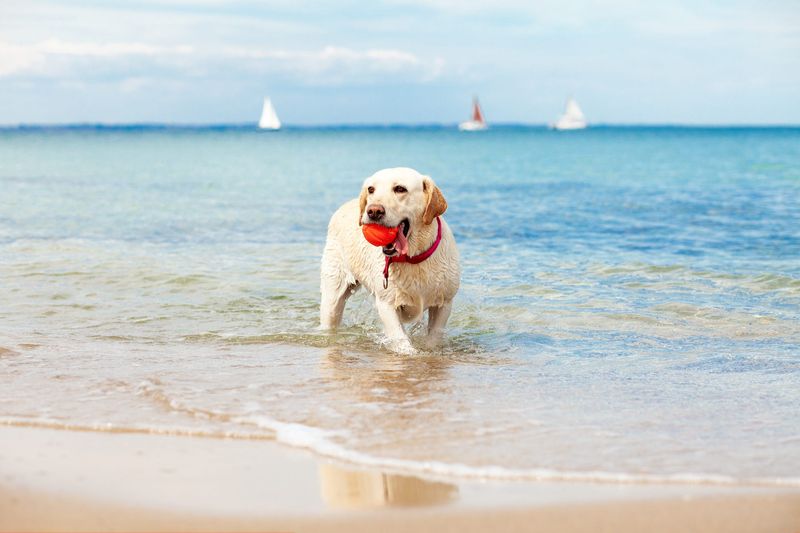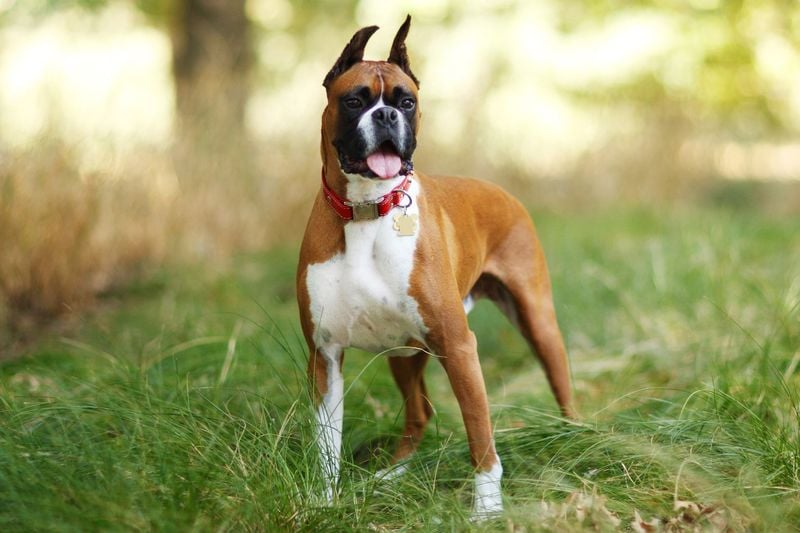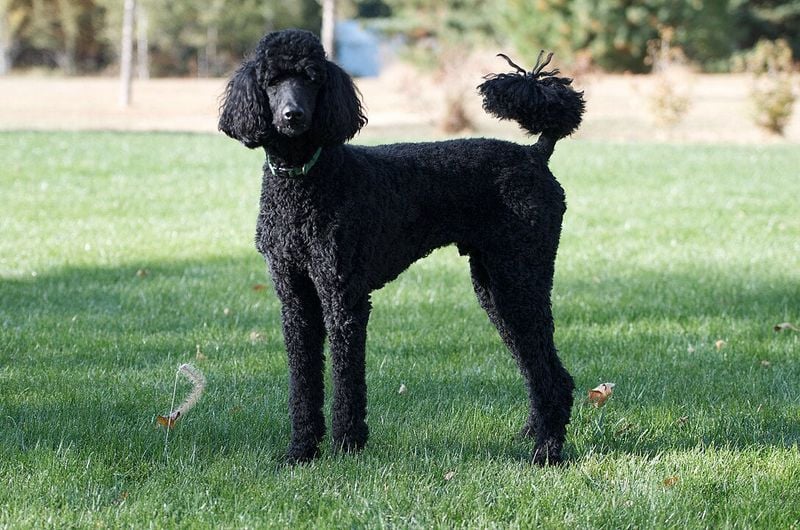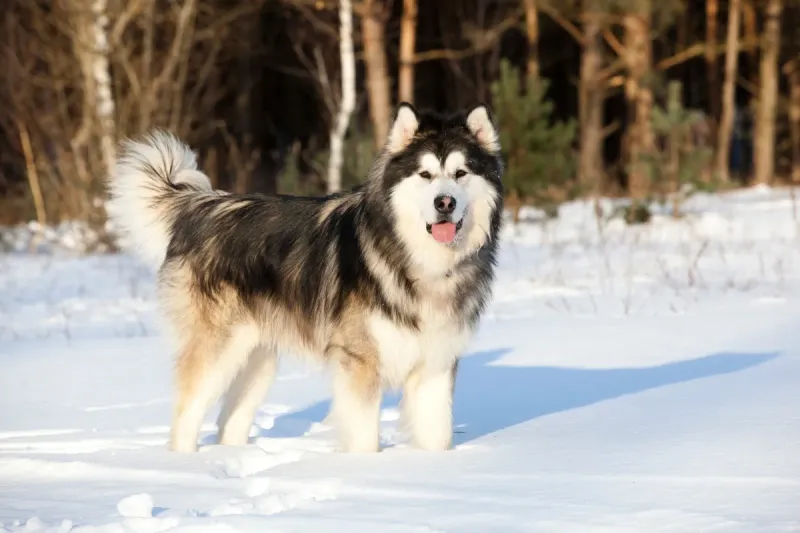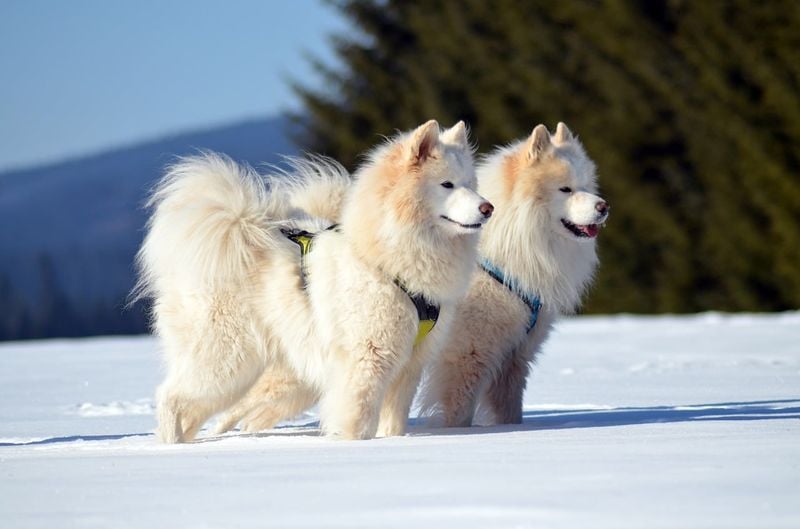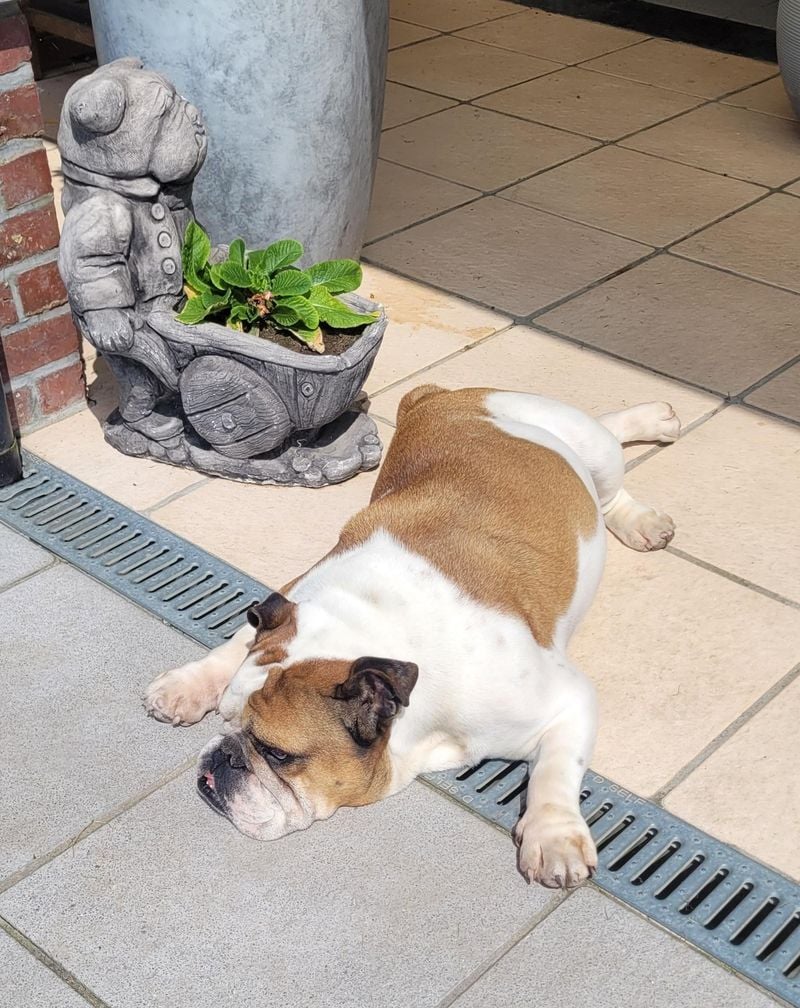17 Dog Breeds That Look Tough, But Are Actually Terrible Guard Dogs
In the world of canines, some breeds carry an intimidating appearance that suggests they’d be perfect guard dogs.
However, looks can be deceiving. This blog uncovers 17 dog breeds that, despite their tough exteriors, are more likely to greet a burglar with a wagging tail than a fierce bark.
Each of these breeds brings a unique charm and lovable personality, making them wonderful companions, but not the best choice for protection duty. Let’s dive into these surprising canine characters.
1. Great Dane
Despite standing eye-to-eye with many humans, this towering breed is more of a gentle soul than a home protector. Great Danes are known for their calm, easygoing temperament and love for lounging. They’re incredibly friendly with strangers, often welcoming newcomers with curious sniffs and a wagging tail.
While their bark might sound intimidating, they rarely use it unless absolutely necessary. Their sheer size can be a deterrent, sure, but that’s about where their guarding abilities end. These dogs crave comfort and connection more than confrontation.
In fact, many are downright sensitive and may shy away from conflict altogether. If you’re hoping for a watchdog that takes charge in tough situations, this lovable giant is more likely to hide behind you than take the lead.
2. Bullmastiff
At first glance, Bullmastiffs look like the perfect canine bodyguards—broad-chested, muscular, and serious. But looks can be deceiving. These dogs are big softies at heart, more inclined to cuddle than to confront anyone entering your home.
They do have a quiet, watchful presence, but they’re not naturally aggressive or territorial. Many are calm to the point of laziness and tend to observe rather than act. Their response to strangers is often more curiosity than caution.
Unless trained otherwise, they simply don’t have the drive to actively guard. You might get a bark or two, but not much else. If your security plan relies on intimidation alone, the Bullmastiff might just sleep through the whole event.
3. Newfoundland
Their massive, bear-like appearance can be seriously misleading. Newfoundlands are among the gentlest dog breeds you’ll ever meet. Bred for water rescues, not security work, they’re driven by compassion and calm rather than alertness and protection.
These dogs adore people—even strangers—and rarely show aggression. They might bark to say hello, but not to warn you of danger. Their go-to reaction is usually a slow tail wag or an affectionate lean against the nearest leg.
More likely to help a drowning man than deter a trespasser, Newfoundlands don’t have a natural guarding instinct. They see everyone as a friend, which is wonderful for families—but terrible if you’re counting on them for home defense.
4. Saint Bernard
With their hefty frames and solemn faces, Saint Bernards could pass for natural protectors. But in reality, these gentle giants are more interested in slobbery kisses than standing guard. They were bred to rescue, not repel.
Saint Bernards are famously sweet-natured and patient, making them fantastic family dogs. They’re slow-moving and rarely get worked up, even when a stranger is at the door. You’re more likely to hear heavy breathing than a growl.
Their temperament is so mellow, it borders on sleepy. And while their bark is deep, they use it sparingly. If a burglar showed up, this dog would probably just drool on them—or better yet, offer a nap buddy.
5. Bernese Mountain Dog
There’s something about their big build and thick fur that might make people think twice—until they get close. Bernese Mountain Dogs are among the friendliest, most people-loving dogs you’ll meet. They bond quickly and aren’t the least bit suspicious.
Originally bred to work on farms, not guard them, these dogs have zero interest in territorial defense. They’re affectionate with strangers, playful with kids, and more likely to welcome than ward off an intruder.
Even their bark, while booming, is rarely used. They’re laid-back and trusting, which makes them amazing family pets but not great security systems. If someone breaks in, your Bernese might just assume they’ve come over to play.
6. Irish Wolfhound
Their name and size might suggest fierce protectiveness, but Irish Wolfhounds are among the most peaceful breeds around. These gentle giants were once hunters, not guard dogs, and it shows in their calm, introspective nature.
They have a regal presence, yet they’re surprisingly shy and sensitive. Loud noises, confrontation, or unexpected guests tend to make them retreat, not respond. Most would rather avoid conflict altogether than risk a fight.
While their appearance can intimidate, they don’t have the temperament to follow through. They may alert you quietly—but that’s it. The idea of them standing their ground is charming, but unrealistic for a breed this sweet-natured.
7. Old English Sheepdog
Covered in a shaggy mop of fur and weighing in with a sturdy frame, Old English Sheepdogs look like serious business—until you meet one. These dogs are bubbly goofballs with a natural love for people.
Their primary instinct is herding, not guarding. They’ll run circles around guests and maybe bark in excitement, but not because they think there’s a threat. Their playful demeanor makes it hard for them to take anything too seriously.
Though their bark can be loud, it’s not used to intimidate. They’re far more interested in chasing butterflies than chasing off intruders. When it comes to guarding the home, these dogs are all fluff and no follow-through.
8. Basset Hound
The low-slung body, droopy eyes, and serious expression might look tough—but the Basset Hound is anything but. This breed is more of a stubborn napper than an alert protector, and they’re notoriously indifferent to strangers.
Bred for trailing scents, not guarding property, Basset Hounds tend to get lost in their noses rather than pay attention to what’s going on around them. They’re also not quick to react—unless food is involved.
When someone knocks, they might bark once from the couch and go right back to sleep. These lovable loafers are charming in every way, but they simply don’t have the instincts or energy to be guard dogs.
9. Greyhound
Sleek, muscular, and fast as lightning, Greyhounds might appear intimidating at first glance. But in reality, they’re sensitive, timid souls who are more likely to flee from danger than confront it. These dogs are sprinters, not fighters.
Their natural instinct is to avoid conflict, not engage with it. Most are quiet, calm, and reserved around new people. If someone breaks in, your Greyhound might slink away to another room or hide under the table.
They also bark infrequently and show little territorial behavior. While their physique might say “athlete,” their personality screams “gentle guest.” For home protection, you’d be better off with a motion sensor than this couch-loving track star.
10. Golden Retriever
Universally adored and famously friendly, Golden Retrievers wouldn’t hurt a fly—let alone guard your home. They’re so eager to please that they treat every new face like a long-lost friend rather than a potential threat.
Goldens thrive on human connection and affection. Their warm, trusting nature means they’re quick to greet strangers with a wagging tail and possibly a toy in their mouth. They simply don’t have a suspicious bone in their body.
Even their bark tends to be cheerful rather than warning. If someone walks in uninvited, don’t expect a growl—expect enthusiastic tail wags and maybe a happy bark or two. They’re lovable companions, just not vigilant protectors.
11. Labrador Retriever
Labs are the picture of friendliness and enthusiasm. They’re loyal to their families but see almost everyone else as a potential playmate. These dogs don’t have much of a guarding instinct and are more likely to escort an intruder around than chase them off.
They’ll happily greet strangers, sniff around curiously, and offer a tail wag—sometimes without a single bark. Labs tend to be more focused on food, games, and affection than on alerting their humans to danger.
Because of their popularity, many assume Labs are great at everything—including guarding. But they simply don’t fit the role. If you want a dog who takes security seriously, this lovable clown won’t make the cut.
12. Boxer
With their chiseled build and alert stance, Boxers often look ready to take on anything. But don’t let their muscular appearance fool you—they’re actually giant goofballs who love being the center of attention.
Boxers are energetic, playful, and famously affectionate. They tend to greet guests with excitement rather than suspicion. Their idea of protecting you might involve jumping up for kisses or inviting the newcomer into a game of chase.
They may bark out of enthusiasm, not aggression. While their looks can suggest toughness, they’re more class clown than security guard. For all their bravado, Boxers just don’t have the seriousness needed for guarding duties.
13. Standard Poodle
Elegant and athletic, Standard Poodles have a dignified air that can be misread as aloof or stern. But underneath that stylish coat is an affectionate, playful spirit with little interest in keeping strangers out.
These dogs are incredibly intelligent and people-focused. They’re more inclined to impress with tricks than to patrol the perimeter. Even when they do bark, it’s usually out of excitement or curiosity rather than warning.
Their temperament is gentle, social, and often goofy. While they might look regal or alert, they’re not naturally suspicious or territorial. A Standard Poodle may prance to the door when someone arrives—but it’s to say hi, not to scare them off.
14. Alaskan Malamute
With their thick fur and wolf-like stare, Malamutes often get mistaken for fierce protectors. But their true nature is far more playful and independent. These dogs are pack animals—but not particularly loyal to guarding duties.
Malamutes tend to love people, including strangers. They’re stubborn and strong-willed, which makes them hard to train for guarding behavior. They also don’t bark much, making them poor at alerting you when something’s amiss.
Their instinct is more about survival and exploration than defense. An intruder might get a tail wag or be completely ignored. Don’t expect this snow-loving breed to play the role of fierce protector—they’re just not wired for it.
15. Samoyed
A smile that stretches ear to ear and a fluffball exterior give Samoyeds their trademark charm—but don’t count on them for serious security. They’re just too friendly, vocal, and social to take on a guard dog role.
Samoyeds love people, attention, and action. They’ll bark at noises, sure—but it’s more chatter than concern. Their bark says “I hear something!” not “Back off!” Strangers often get greeted with excited hops and tail wags.
They were bred to herd and pull sleds, not to protect territory. Even with their alert eyes and big-dog looks, Samoyeds are just too cheerful and affectionate to be intimidating. They’ll charm visitors instead of chasing them away.
16. English Bulldog
Stocky, wrinkled, and serious-faced, the English Bulldog looks like he could bodycheck a burglar—until you realize he’d rather nap through the whole thing. This breed is famously lazy, stubborn, and utterly uninterested in conflict.
Most Bulldogs have a low-energy lifestyle and aren’t known for quick reactions. They’re more likely to snore at the doorbell than investigate it. Their loyalty is strong, but their protective instincts are nearly nonexistent.
Strangers are usually met with mild interest, not suspicion. Even their bark is rare, and when it does come, it’s more of a grumble. If you’re banking on your Bulldog for security, you might want to reconsider your plan.
17. Cavalier King Charles Spaniel
The name might sound regal, and their silky coat gives them a polished look—but these tiny charmers are utterly useless as guard dogs. Cavalier King Charles Spaniels are bred for companionship, not confrontation, and they embody sweetness in every way.
They greet everyone—family, friends, or strangers—with the same joyful affection. Suspicion isn’t part of their emotional vocabulary. If someone entered your home uninvited, a Cavalier might just jump in their lap and beg for belly rubs.
Their bark is soft and seldom used. They’d rather follow you from room to room than stand watch at a door. While they excel at offering love and comfort, guarding the house simply isn’t in their job description.

